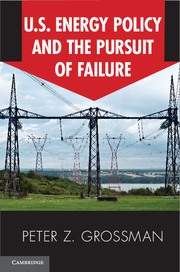8 - Crisis 2.0
Published online by Cambridge University Press: 05 March 2013
Summary
What has been will be again,
what has been done will be done again;
there is nothing new under the sun.
Is there anything of which one can say,
“Look! This is something new”?
It was here already, long ago;
it was here before our time.
No one remembers the former generations,
and even those yet to come
will not be remembered
by those who follow them.
– Ecclesiastes 1 (New International Version)
Introduction
When Republican George W. Bush was finally declared the forty-third president of the United States in December 2000, he faced an energy crisis. When he left office, eight years later, the United States was in the midst of an energy crisis. Soon after Democrat Barack Obama became the forty-fourth president, there was, according to most Americans, even more of an energy crisis. Three years into his presidency, there was still said to be an American energy crisis. In fact, for virtually the entire twenty-first century, there has been an energy crisis. The crisis label has been invoked so often that a concept with little meaning to begin with has become almost completely empty.
Just what constitutes a twenty-first-century energy crisis? First and foremost, high gasoline prices. Rising prices, from whatever base, mean discomforted constituents, and so there is at least a political crisis. Yet, high oil prices also have prompted broader economic concerns. From the 1970s to 2001, there seemed to be a definite link between rising energy prices and economic downturns, and scholars argued over whether oil prices drove the business cycle – at least in a downward direction. But even if it were true that high oil prices caused recessions, as has been noted often in this book, these declines have been transitory, typically short downturns that were quickly reversed. The record of the period from 1981 to 2000 was one overall of substantial U.S. economic growth.
- Type
- Chapter
- Information
- US Energy Policy and the Pursuit of Failure , pp. 286 - 329Publisher: Cambridge University PressPrint publication year: 2013

